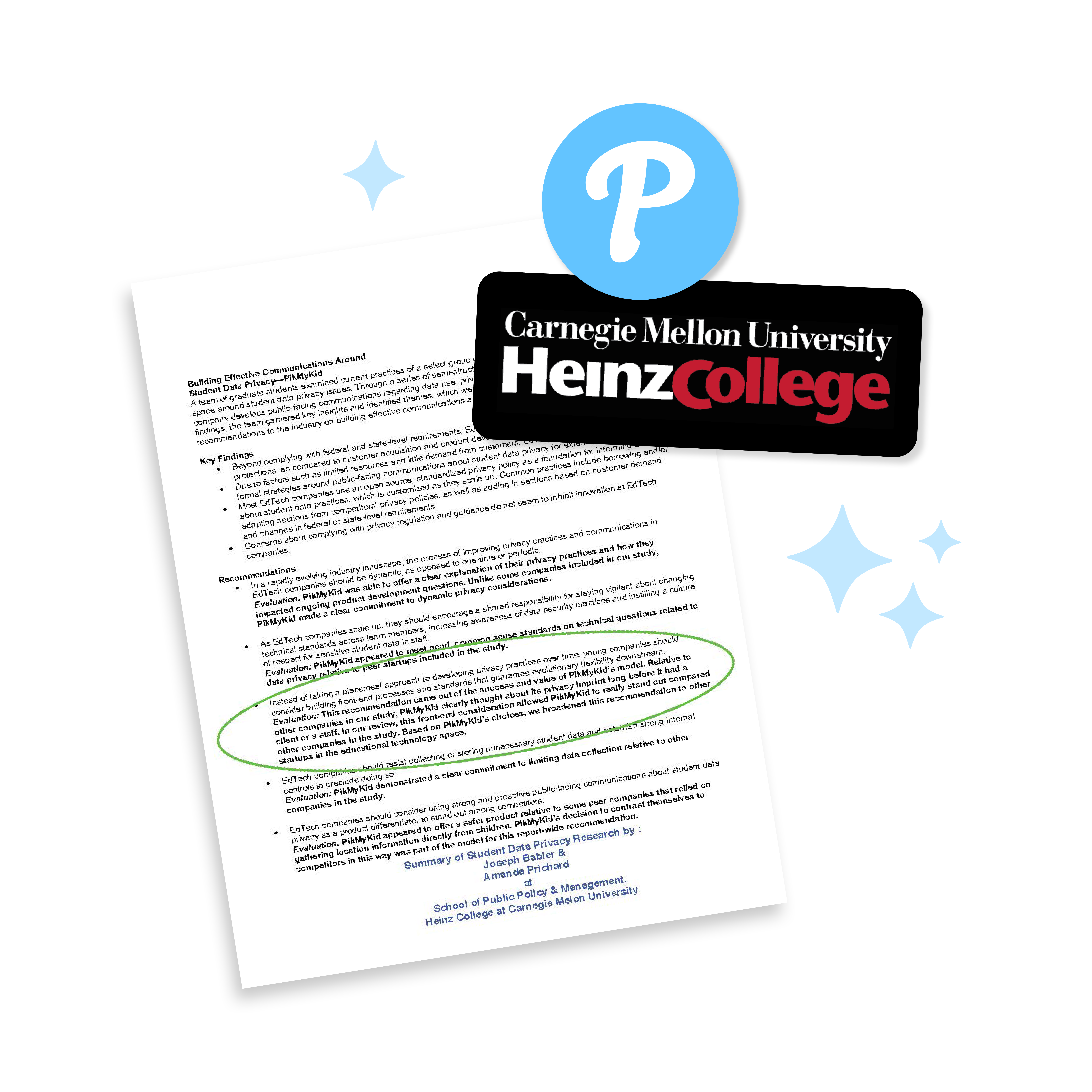Case Study
Building Effective
Communications Around Student
Data Privacy
School
Heinz College at Carnegie Mellon University, PITTSBURGH, PA
School of Public Policy & Management
summary of student data privacy & research
Joseph Babler & Amanda Prichard
Carnegie Mellon and a team of graduate students examined current practices of a select group of education technology startups in the K-12 space around student data privacy issues in this School Dismissal Case Study. Through a series of semi-structured interviews, the team explored how each company develops public-facing communications regarding data use, privacy, and security policies.

Case Study Summary
- Beyond complying with federal and state-level requirements, EdTech companies do not prioritize student data protections, as compared to customer acquisition and product development in their first five years.
- Due to factors such as limited resources and little demand from customers, EdTech companies do not establish formal strategies around public-facing communications about student data privacy for external stakeholders.
- Most EdTech companies use an open source, standardized privacy policy as a foundation for informing users adapting sections from competitors’ privacy policies, as well as adding in sections based on customer demand and changes in federal or state-level requirements.
- Concerns about complying with privacy regulation and guidance do not seem to inhibit innovation at EdTech companies.
"This recommendation came out of the success and value of Pikmykid's model. Relative to other companies in our study, Pikmykid clearly thought about its privacy imprint long before it had a client or staff. In our review, this front-end consideration really allowed Pikmykid to stand out compared to other companies in the study. Based on Pikmykid's choices, we broadened this recommendation to other startups in the educational technology space."
Joseph Babler & Amanda PrichardSchool of Public Policy & Management, Carnegie Mellon
Ready to Transform Your Daily & Emergency Procedures?
Book a demo today to see how Pikmykid can help you streamline your process to make every school day safer.